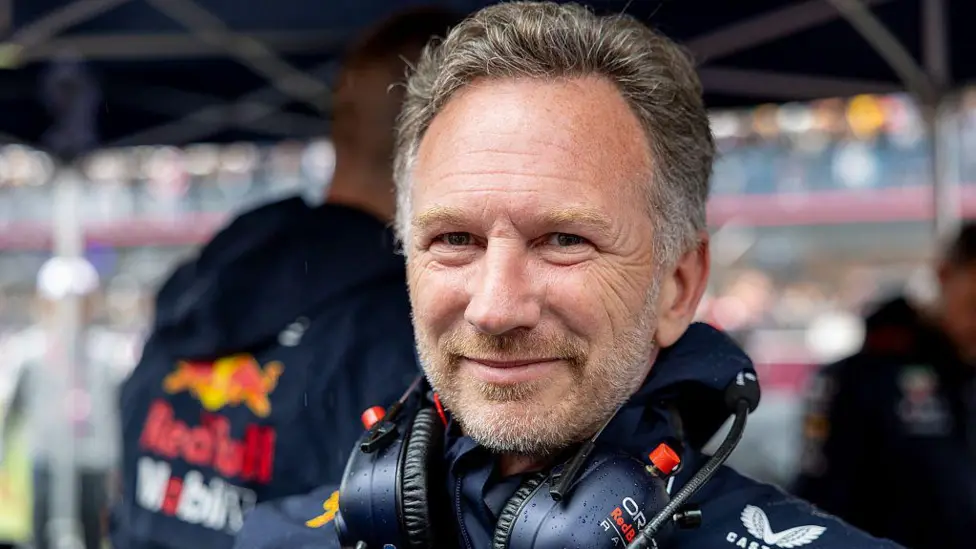Christian Horner has formally departed Red Bull Racing, concluding a remarkable two-decade tenure as the team’s principal, following his controversial dismissal in July. While Red Bull’s official statement made no mention of financial details, sources have confirmed that Horner received a severance package worth 60 million euros (£52 million), making it one of the largest pay-offs in sports history.
Horner, 51, had led Red Bull since the team’s inception in Formula 1 in 2005, guiding the squad to eight drivers’ championships and six constructors’ titles. Under his leadership, Red Bull became one of the sport’s dominant forces, challenging established automotive giants and reshaping the competitive landscape of Formula 1.
The Red Bull statement announcing his departure thanked Horner for his “exceptional work,” acknowledging his tireless commitment, innovative thinking, and instrumental role in transforming Red Bull Racing into one of the most successful and attractive teams in F1. Horner, in turn, expressed pride in leading a group of talented individuals and competing successfully against some of the world’s largest automotive brands.
Horner’s exit comes after a turbulent 18 months that began with allegations of sexual harassment by a female employee in February 2024. While Horner was ultimately cleared twice—first by an internal investigation and then after the complainant’s appeal—these allegations exposed internal tensions and sparked a power struggle within the team.
Key departures followed, further destabilizing Red Bull’s hierarchy. Long-time design director Adrian Newey, widely regarded as the greatest designer in F1 history, left in April 2024, citing both the allegations and a perception that his influence within the team had diminished. Sporting director Jonathan Wheatley departed in July and is now team principal at Sauber, preparing the outfit for its transition into Audi’s factory team next year. Will Courtenay, head of strategy since Red Bull’s Jaguar era, also resigned and is set to join McLaren as sporting director.
Red Bull’s declining performance in the first half of the 2025 season compounded internal tensions. The team struggled in key races, notably at the British Grand Prix, where poor results exacerbated frictions with main shareholders Chalerm Yoovidhya and Oliver Mintzlaff. Yoovidhya, who had initially supported Horner during the allegations, ultimately saw the leadership change as necessary, while Mintzlaff, Red Bull’s CEO for corporate projects and investments, executed the final decision to remove him.
Despite the controversy, Horner leaves behind a legacy of success. He oversaw the rise of Red Bull from a fledgling constructor to a championship-winning powerhouse. His strategic acumen, ability to nurture talent, and leadership qualities played a pivotal role in building a team capable of competing with, and often surpassing, the sport’s established automotive giants.
Horner’s tenure also saw the grooming of multiple F1 champions, including Sebastian Vettel and Max Verstappen, both of whom flourished under his guidance. His focus on innovation, teamwork, and performance optimization became a hallmark of Red Bull Racing’s operational philosophy.
In his farewell statement, Horner reflected on the privilege of leading the team and praised the individuals who contributed to its success. “My biggest satisfaction has been assembling and leading the most amazing group of talented and driven individuals and seeing them flourish as a subsidiary of an energy drinks company and seeing them take on and beat some of the biggest automotive brands in the world,” he said.
While his departure marks the end of an era, Red Bull Racing continues to pursue competitive excellence under new leadership. The team remains a key player in Formula 1, with ambitions to maintain its championship-winning form. Horner’s influence, however, will remain indelibly linked to the team’s identity and success over the past 20 years.
As one of the longest-serving principals in modern Formula 1 history, Christian Horner’s departure—with a record-setting £52 million pay-off—represents both the conclusion of a storied chapter and a reminder of the high-stakes nature of leadership in elite motorsport.



